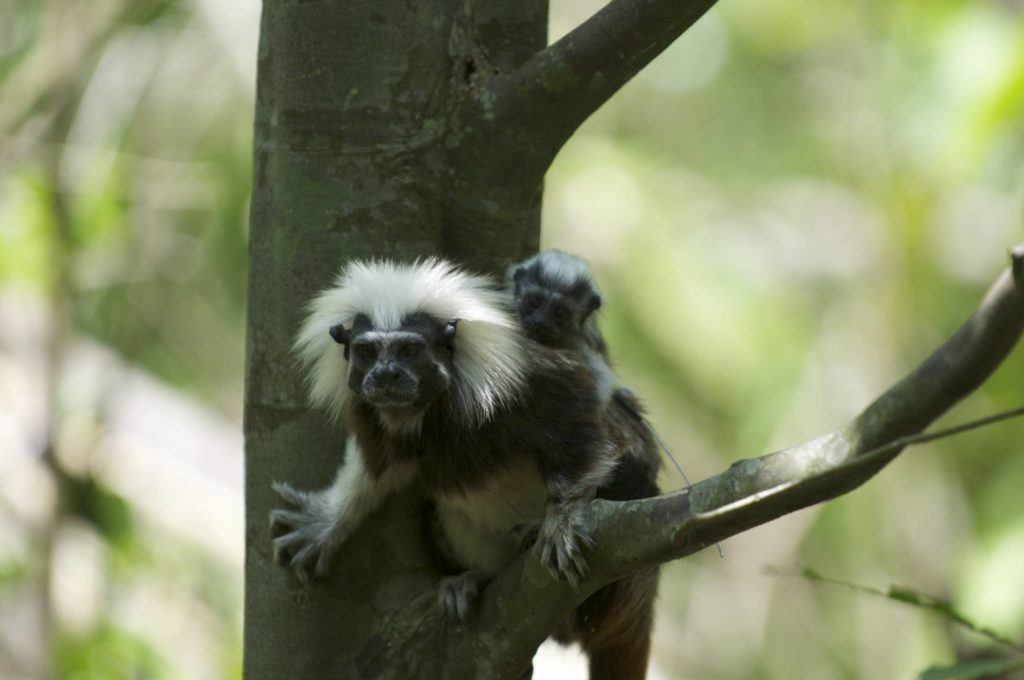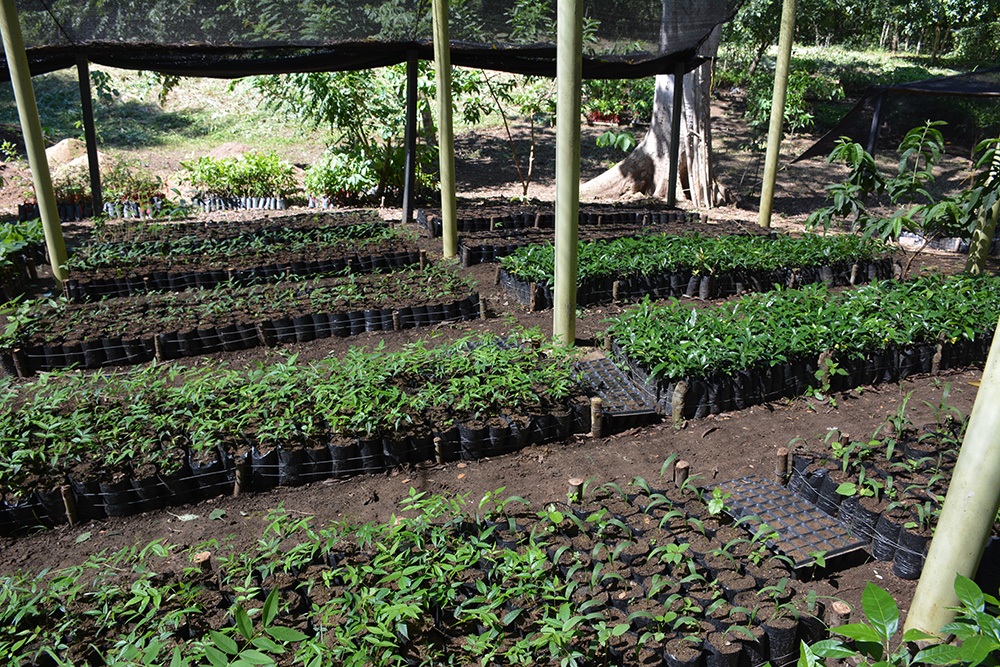
The ancient Ceiba tree towers over Rosamira at roughly 230 feet. With a massive spiny trunk and branches heavy with clusters of flower-shaped leaves, the Ceiba has an imposing presence. This giant of a tree is the preferred sleeping place for the tiny, one-pound cotton-top tamarins—endangered primates that Rosamira Guillen, executive director at Proyecto Tití, and her team have been protecting for over 14 years. Rosamira searches the tree’s dense foliage for cotton-tops; the possibility of seeing them in this particular patch of forest makes her heart race.
A few weeks ago, the farmer who owns this parcel of land spotted a cotton-top napping on this very Ceiba tree; the farmer had never seen a cotton-top in this region before. Until recently, such a sighting in this part of San Juan, in northern Colombia, would never have occurred. Decades of conflict between the government and local rebel groups, slash and burn agriculture, and logging had left the forest heavily fragmented, relegating cotton-tops to certain areas. Wildlife in these forest islands have remained isolated, struggling for food and shelter. This is why Proyecto Tití focuses on building forest corridors—small paths of trees between community lands and farms that link up these forest islands, giving wildlife greater mobility and broadening their habitat. The presence of a cotton-top in this area meant that this monkey had found its way to Proyecto Tití’s newly established corridor.
 Proyecto Tití’s community nursery, where they planted 25,000 seedlings—all native species, like the Ceiba—in their first year.
Proyecto Tití’s community nursery, where they planted 25,000 seedlings—all native species, like the Ceiba—in their first year.
In 2016, Proyecto Tití partnered with local organizations to restore fragmented forests and plant protected corridors. Farmers set aside portions of their land for this purpose and in return, Proyecto Tití and their partners trained the farmers in environmentally-friendly farming practices, such as rotating crops, growing seasonal fruit trees, and sustainable cattle ranching. Proyecto Tití also set up a community nursery where they planted 25,000 seedlings in their first year—all native tree species, like the Ceiba, that cotton-tops favor for food and shelter—half of which were used to build the forest corridors.
It has been just two years since this initiative began and Rosamira is already seeing enormous benefits. The seedlings are growing taller and stronger every day, there are signs that wildlife have been exploring the new corridors, and communities are now able to access water, even in the dry season. Most importantly, Rosamira and her team are making a tangible impact to save these beloved monkeys. The team is hoping these new cotton-top sightings are just the beginning and cotton-tops will continue to spread to new forest areas.

